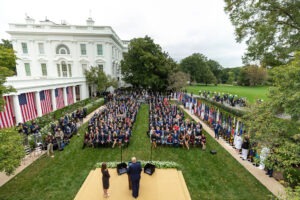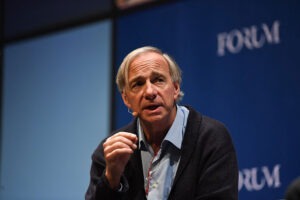September 22, 2016; Bay State Banner
This November, voters in Massachusetts will be asked to decide how charter schools fit into their state’s public education system. Though such a question might once have had only local interest, it’s now become a national concern. Fueled by unusually large campaign war chests, Massachusetts state ballot initiative Question 2 has become ground zero for the national debate over school choice and market-driven educational reform.
Speaking to the Bay State Banner, Peter Enrich, a Northeastern University law professor with expertise on fiscal policy and public education funding, described the larger context in which this otherwise local question has been framed by those seeing market forces as the key element in educational reform.
If I were a conservative deep-pocketed person who wanted to enhance privatization of schools, I’d say, if I can win in Massachusetts, that will send a huge message nationally because Massachusetts has a reputation as a relatively progressive, union-friendly state, so this would be way to achieve a huge victory.
Sign up for our free newsletters
Subscribe to NPQ's newsletters to have our top stories delivered directly to your inbox.
By signing up, you agree to our privacy policy and terms of use, and to receive messages from NPQ and our partners.
Maurice Cunningham, University of Massachusetts associate professor of political science, added another element. He “regards the charter school debate as part of a larger fight between wealthy individuals seeking fewer taxes and smaller government and unions, which advocate for public funding and, with their ability to organize, represent a counterforce to the influence of money in politics and policy.”
In this larger context, a local issue becomes national and attracts funders far and wide. Supporters of market-based school reform have opened up their pocketbooks. Millions of dollars, much of it from out of state donors, will be spent before November 8th to sway voter opinion on this one ballot question. As of September 20th, campaign war chests total $18 million, an amount that exceeds what might be expected for a local election. (A total of $5.5 million has been raised for campaigns related to the three other issues on the November ballot.)
Two-thirds of the Question 2 total has been raised to support charter expansion and reflects the growing influence of mega-donors and dark money seen in national elections. According to blogger Mercedes Schneider, who has been following this money, the New York-based lobbying nonprofit, Families for Excellent Schools Advocacy, is the source of more than half of the pro-charter funding. The Bay State Banner noted that Education Reform Now Advocacy, “whose board the Center for Media and Democracy says comprises primarily Wall Streeters,” has donated more than $500,000 to the cause. Related to the 501(c)(3) charity Education Reform Now, ERNA is a 501(c)(4) dark money nonprofit organization that does not have to disclose its funders.
What’s taking place in the Bay State mirrors events in local school elections across the country. Partisans of school choice and market-based education with the financial resources to powerfully campaign change the very nature of the local educational framework and try to drown out local forces. They replace a local perspective with a national one. But that national perspective is not an elected one; rather, it is composed of a wealthy elite. What seems to be at stake is much more than how one state chooses to run its public schools. The outcome matters to anyone who sees education as a public benefit that must remain accountable to those it serves.—Martin Levine












